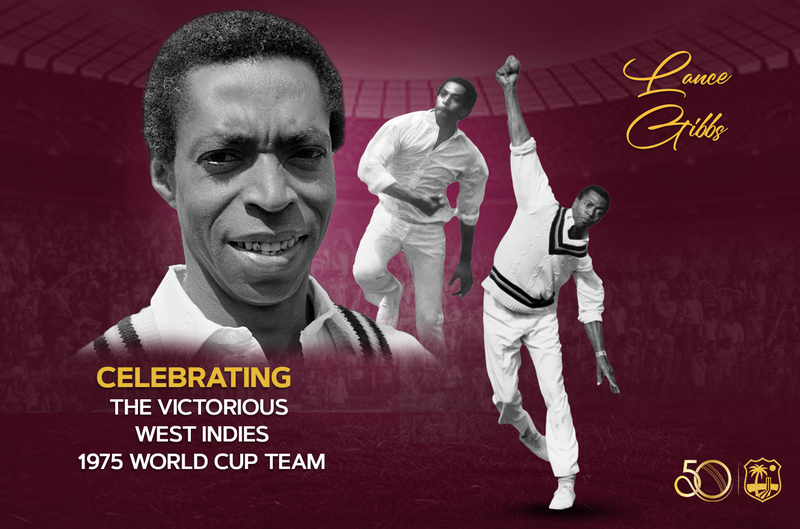Lance Gibbs’s Pivotal Role in the West Indies’ Early World Cup Supremacy
Lance Gibbs, a name etched in the annals of West Indies cricketing history, stands as a testament to the artistry and impact of off-spin bowling. His presence in the 1975 World Cup-winning squad, though limited in active playing time, resonated far beyond the boundaries of the field. At 40 years old, Gibbs brought a wealth of experience and a calm, respected presence to a team brimming with both youthful energy and seasoned veterans. His selection itself, in an era and tournament format not particularly conducive to spin bowling, spoke volumes about his value as a leader and strategist. Gibbs embodied the transition between the established traditions of Test cricket and the burgeoning dynamism of the one-day international format, bridging the gap for a team finding its footing in the new cricketing landscape.
Gibbs’s more than 300 Test wickets at the time of the 1975 World Cup underscored his mastery of the craft. His inclusion provided the West Indies with a tactical advantage, allowing them to adapt to varying pitch conditions and opponent strategies. More importantly, his presence provided a stabilizing force within the team, offering guidance and mentorship to the younger players, sharing insights gleaned from years of international competition. This mentorship extended beyond mere technical advice, encompassing the mental fortitude and strategic thinking required to succeed at the highest level. He instilled in the team a sense of discipline and tactical awareness that would prove instrumental in their World Cup victory and shape the team’s future successes.
While the fast-bowling prowess of the West Indies attack often dominated the headlines, Gibbs’s subtle contributions played a crucial, albeit less publicized, role. He exemplified the importance of a balanced team composition, demonstrating that even in a format increasingly favouring pace, the nuanced skill of a seasoned spinner could provide a crucial edge. His strategic insights, gleaned from years of reading batsmen and dissecting match situations, provided valuable input to the team’s overall game plan. In a tournament where adapting to changing conditions and opponent strategies was paramount, Gibbs’s experience proved invaluable.
The 1975 World Cup marked a turning point in cricket history, signifying the arrival of the limited-overs format as a major force. The West Indies, with their blend of explosive batting and fearsome pace attack, were at the forefront of this revolution. Gibbs’s presence, however, highlighted the continued relevance of traditional cricketing values. His discipline, strategic acumen, and ability to read the game served as a reminder that even in the fast-paced world of one-day cricket, experience and intelligent game management remained essential ingredients for success.
Gibbs’s legacy within the 1975 World Cup-winning squad extends beyond his statistical contributions. He embodied the spirit of mentorship and leadership, guiding the younger players and fostering a sense of unity within the team. His quiet influence and the respect he commanded within the dressing room played a vital role in shaping the team’s dynamic and contributing to their ultimate triumph. His story exemplifies the often-unsung contributions of senior players who, while perhaps not always in the spotlight, play a crucial role in shaping a team’s character and fostering a winning culture.
The recognition bestowed upon Lance Gibbs at the 8th annual Cricket West Indies and West Indies Players’ Association awards gala is a fitting tribute to his enduring impact on the game. It serves as a reminder that cricketing success is not solely defined by individual brilliance but also by the collective contributions of players who bring experience, leadership, and a deep understanding of the game to the table. Gibbs’s story, though perhaps less flamboyant than some of his more explosive teammates, stands as a testament to the enduring value of wisdom, mentorship, and the quiet dignity of a true cricketing statesman. His impact transcended the boundaries of the playing field, shaping the very fabric of West Indies cricket and leaving an indelible mark on the history of the game.
Share this content:












Post Comment